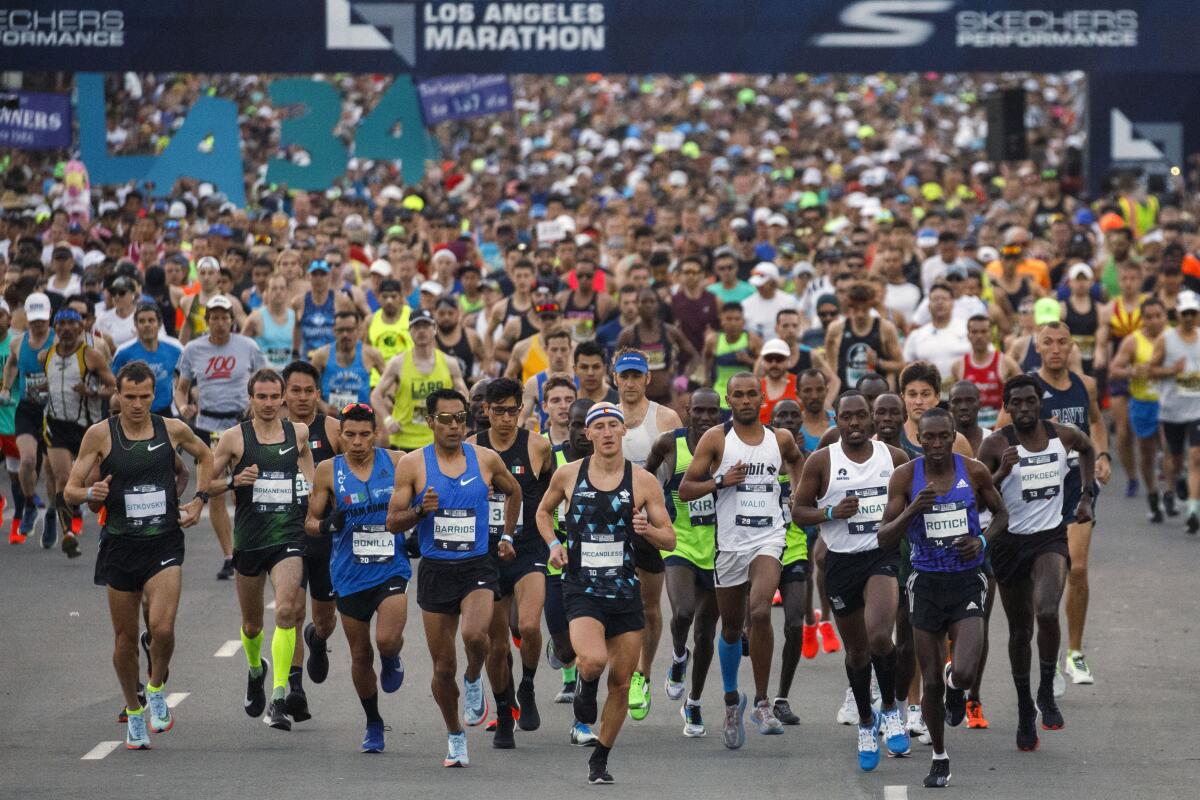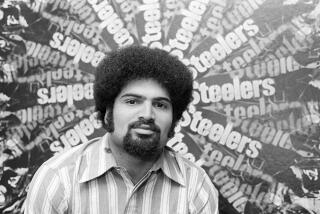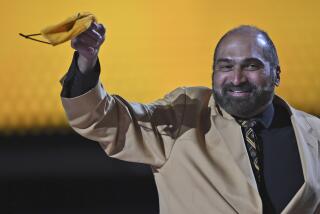Three most important things in running: location, location, location

- Share via
Sheila Pereira of Worcester, Mass., recently signed up online to run in the Worcester City Half Marathon on Sept. 15: a good challenge for the amateur runner. The day before, she received an email with an overhead view of the course. Unfortunately, it was then she discovered her critical mistake: She had signed up for the half marathon in Worcester, England, not Worcester, Mass.
It was a little late to plan an expensive trip to England just to run, but not one to be defeated, she decided to run 13 miles in Worcester, Mass., while everyone else was running in Worcester, England. She sent the English race organizers a screenshot of her running route near Lake Quinsigamond and sent her a shot from her fitness app that showed she completed her half marathon in two hours and five minutes.
Impressed, the Worcester City Half Marathon sent along a medal, a shirt and an invitation to participate in person in next year’s race.
The best ever
The “Immaculate Reception” is the greatest play in NFL history. In a 1972 game between the Pittsburgh Steelers and Oakland Raiders, a desperation pass from Terry Bradshaw bounced off Jack Tatum of the Raiders, ending the Steelers’ chance at a comeback victory. Except the ball ricocheted off Tatum directly into the arms of Steelers running back Franco Harris, who rumbled into the end zone for a touchdown. Pittsburgh kicked the extra point for a 13-7 lead with 5 seconds remaining and won a playoff game for the first time in franchise history.
Second was Dwight Clark’s TD catch from Joe Montana that lifted San Francisco past Dallas to win the 1981 NFC championship. Third was David Tyree’s helmet catch for the New York Giants in Super Bowl XLIII. Fourth was the Tennessee Titans’ “Music City Miracle,” and fifth was Malcolm Butler’s endzone interception to seal New England’s victory in Super Bowl XLIX.
“That play really represents our teams of the ‘70s,” Harris told the Associated Press.
More to Read
Go beyond the scoreboard
Get the latest on L.A.'s teams in the daily Sports Report newsletter.
You may occasionally receive promotional content from the Los Angeles Times.











